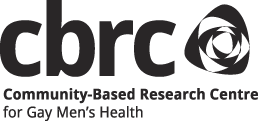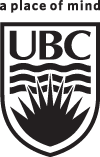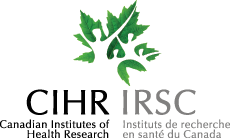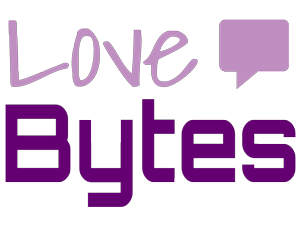Health Literacy, Sexual Health, and Gay Men
Report from a meeting of researchers, policy-makers, service providers and community members funded by the Canadian Institutes of Health Research
Why is health literacy important when thinking about the sexual health of gay men?
Health literacy is having the skills to find, understand, evaluate and talk about health information with others. Health literacy is important for good health at all ages – and this includes for sexual health. In Canada, gay men were one of the first groups affected by HIV. Over time, gay men have developed ways to prevent HIV based on new information about the virus and how it spreads. Today, because there is so much more information about HIV, having good health literacy skills has become even more important for gay men. However, not much research has been done looking at the relationship between health literacy and sexual health for gay men.
You can learn more about this project and our framework by reading the executive summary or the full workshop report (original) or (graphics-lite accessible).
What is this project about?
On October 30 to November 1, 2014, we held a meeting as part of the British Columbia Gay Men’s Health Summit to gather ideas about what affects sexual health literacy for gay men, and to identify the research questions we had on the topic. We also thought about the roles of health care providers (for example, nurses, doctors, or staff in government or community health agencies, or these agencies themselves), as well as thinking about the broader factors in society that were related to sexual health literacy. The meeting included researchers, community members, health care providers, and decision-makers who worked in gay men’s health.

What happened?
The Summit had presentations spanning a number of topics, including:
- Reviewing health literacy as a concept, and how it applies to gay men’s health
- Factors affecting how gay men experience or think about sexual risk, and the challenges and opportunities for providers to communicate risk information
- How gay men use the internet as a source of health information, and how sexual health information is presented on agency websites
- How gay men are making sense of new HIV prevention tools
We then held a one-day World Café following the Summit to have a dialogue on the relevance of health literacy to gay men’s sexual health, teasing apart the different themes and questions raised in the discussions.
An emerging framework for sexual health literacy
We brought all of these ideas together to develop a framework for how to think about sexual health literacy for gay men (shown below). We also identified the key research questions to consider related to each element of the framework. As a result, we hope this framework can be helpful in planning future research studies, as well as for thinking about tools or programs to improve sexual health literacy for gay men.
For more information, please contact:
-
Mark Gilbert, MD
Director, Applied Epidemiology Unit
Ontario HIV Treatment Network
416-642-6486 x 2306
[email protected]
The information
Consistent messages
Gay men sometimes receive different advice about HIV. For example, they may hear different answers about how soon a test can detect HIV, or how good new prevention strategies are. This is partly because the scientific evidence on these topics at times is not clear, and partly because clinicians and service providers have not reached agreement on what the messages should be.
Questions to consider:
- Who is best to reach agreement on health messages – community agencies, government agencies, or both?
Engaging messages
Messages about HIV prevention are often focused on “bad news”, such as focusing on someone’s risk of getting HIV. Sex-positive conversations about the role of pleasure and desire in making decisions about sex are rare. We may be able to make more engaging messages by talking about these and other topics that gay men think are important and have questions about – like how to have successful relationships, or how to talk about health information with partners.
Questions to consider:
- How can we create engaging messages? Do we need to be cutting edge, share conflicting information, or be provocative?
Health Literacy Skills
Finding, understanding, evaluating, talking about Health Information
In order for gay men and service providers to be health literate, they need to be able to find health information, understand it, evaluate how good it is, and talk about the information with others. Because of the history of HIV in the gay community, we assume that many gay men are health literate but we haven’t measured this to know for sure. There may be groups of gay men that have poor health literacy, such as younger men, or men who have immigrated to Canada and don’t speak English well. We also don’t know much about the health literacy skills of the health care providers that work with gay men about their sexual health.
While it’s important that we produce accurate and helpful health information, we also need to make sure that gay men and health care providers have the skills to find, understand, use and evaluate that information. These skills are just as important as learning the content.
Questions to consider:
- Which gay men have good health literacy, and how did they get these skills?
- Can we use this information to improve health literacy for other men?
- What do gay men need to know, and which gay men need to know it?
- In our programs are we focusing too much on gay men who already have good health literacy?
Information Providers
Provider knowledge level
While some health care providers have good knowledge about HIV and sexual health, not all of them do. Gay men – especially trans men and men living with HIV – often need to educate their own health care providers about the health information that is important for their sexual health. Sharing the most current information about HIV prevention and gay men’s health with providers may help to improve the care they give to gay men and make health messages more consistent.
Questions to consider:
- Who is responsible for making sure that providers have the right information?
- How can we help organizations to share their knowledge with health care providers?
- How can we reach health care providers once they leave school?
- How can we ensure that health care providers have the time they need to learn?
Provider communication skills
In addition to having knowledge about gay men’s sexual health issues, providers also need to have good communication skills. They need to understand the needs, desires, goals and values of their clients, and adjust their health care and treatment discussions with these in mind.
Questions to consider:
- What skills do service providers working in gay men’s health need to have?
- Are service providers able to talk about sex with gay men?
Provider attitudes
Communication between gay men and health care providers is sometimes blocked or limited by homophobia, stigma or the provider’s personal attitude toward sex (for example, feeling uncomfortable talking about sex). This may mean that health care providers treat gay men differently from other clients, or that they give out wrong information. It may also mean that providers talk about the information in less sympathetic or sex-positive ways, which can affect how the information is received.
Questions to consider:
- Why do gay men change doctors?
Culturally competent care
Gay men’s sexual health literacy and how they access health services are affected by their experiences with the health care system, both good and bad. It is important that healthcare providers working with gay men are able to provide appropriate, respectful and safe health care to gay men. However, many providers do not get enough training on the cultures and issues that are important for sexual minority groups like gay men. Also, providers may not have the opportunity to develop the skills that would allow them to provide competent care to these groups.
Questions to consider:
- What is it that makes a provider culturally competent? How much is due to their own experiences or interest, and how much is training? What motivates providers to gain these skills?
- Where do providers find the training to be culturally competent, and who trains them?
- How can we help providers to understand gay culture and the language that gay men use?
Shared responsibility
Challenges for CBOs
Providers working in community-based organizations or CBOs (including AIDS service organizations) who provide services to gay men play an important role in influencing which information is shared and how. That said, limits on funding can make it difficult for community-based organizations to support sexual health literacy (for example, to keep websites up to date). Limits on funding can also make it difficult to get and keep staff, leading to high turnover and challenges in keeping staff trained. Also, the kinds of information community-based workers provide may conflict with information provided by other health care providers and agencies within the government health system, and so may have less impact.
Questions to consider:
- What skills and abilities do AIDS service organizations have for improving health literacy?
- What role should community organizations play in developing, implementing and evaluating health literacy programs?
More than the health system
Gay men get health information from a wide range of sources, which makes it even more challenging to get consistent messages. In addition to service providers and peers, gay men get health information in school, on the internet, and through pornography. Websites and smartphone apps may provide an opportunity to deliver health information when men are using them to look for sex. Providing relevant sexual health information for students in grade school and high school is also important.
Questions to consider:
- How can we work with these different types of providers of information on the topic of sexual health literacy?
- Can we have an influence on the media or on the school system?
- How do we create partnerships that lead to better health literacy?
- What is the role of pornography, websites, and smartphone apps as providers of health information? Can we learn from their methods?
Information Users
Communities taking action
Gay men have a history of responding to HIV through community action and creating knowledge, which is still just as important today. Health literacy can be a way to call for the full inclusion of gay men in society and in the health system in particular. Successful “grass-roots” community actions for improving sexual health literacy for gay men may include ways of challenging mainstream messages, or building partnerships with other agencies that serve other populations with similar goals.
Questions to consider:
- How has leaving gay men out of prevention efforts in the past affected sexual health literacy today?
- Do we keep or dismiss our history? Are gay men today aware of the causes and effects of issues such as HIV?
- What are the “bottom-up” or grass-roots methods for improving sexual health literacy? How does knowledge move from the bottom-up in a top-down funding system?
- How can we get leaders to use grass-roots knowledge? Are strategies that challenge the system the only way?
- Do we have a critical mass for change?
Talking to partners
Some gay men use code words when looking for and talking about sex. Rather than talking directly about HIV, they may say things like “undetectable,” “safe sex all the time,” or “needs discussion,” trusting that other men will understand what they mean. This may be related to stigma about HIV, or by ideas about what it means to be a man and how men talk to each other.
Questions to consider:
- What do men assume these code words mean, and how do gay men reach agreement about them?
- How are these “rules of the game” related to gaps in sexual health literacy?
From knowledge to action
Having the right information does not always mean a change in behavior. When we think about sexual behavior, we need to move beyond thinking that people always make decisions about sex based on carefully weighing the risks and benefits of their actions. How knowledge is used – and if it is used - for sexual decisions depends on many things. These include the circumstances at the time of having sex, being willing to change behaviour, personality, being part of a network of gay men or not, past experience, and factors that affect making decisions such as mental health problems or problems with drugs and alcohol.
Questions to consider:
- How do these factors affect the way gay men use health information?
- How, when, and why do gay men take action based on health information?
Using condoms
While most gay men know that condoms can prevent HIV, many factors beyond knowledge influence whether someone uses condoms or not. These factors include personal attitudes towards condoms, how emotionally connected someone is to their partner, and the effects of condoms on sexual pleasure or on erections. New information about “condomless” prevention methods has led to changes in how condoms are talked about, and how they are used by gay men. Examples of these other prevention methods include using medication to prevent getting HIV (called PrEP), or with HIV treatment having very low levels of HIV virus in blood (undetectable viral load) which prevents passing HIV to someone else.
Questions to consider:
- Do we still talk about condoms?
- Do new prevention methods like PrEP mean gay men feel pressure not to use condoms?
- Are gay men focusing too much on information that suggests that condoms are not important anymore?
Peers, partners, networks
Sharing of information between gay men (as peers or partners) plays an important and positive role in health literacy for gay men. Peers – either of the same age or different ages – may share information from their lives, teaching each other about sex through talking and doing. However, the importance and effect of peers that work as health care providers (such as peer navigators) often goes unrecognized.
Questions to consider:
- What is the role of friends, peers, social and sexual networks and sexual health literacy?
- Are peer navigators champions for gay men’s health, or are they a way of making a broken system seem acceptable? Are there issues around how much peers are paid compared to professional health providers?
Underlying Factors
The internet
In addition to creating messages that are engaging, we need to look at better ways of getting them to gay men. The internet is an important tool for doing this, particularly for gay men who are spending more and more time online. Through the web, information can be shared and used by a large number of people at once, and online conversations about information can be easier than in person. Websites can also have interactive features that are more engaging. On the flip side, sometimes the information that is found online is wrong.
Questions to consider:
- Who is included and not included in online conversations about sexual health? What new social and sexual networks are made because of this?
- What opportunities and challenges does using the internet bring to health literacy?
Values, beliefs, and politics
Health literacy can be affected by values, beliefs and politics. For example, if a decision-maker thinks HIV is not an important health problem in Canada then they likely think programs for sexual health literacy for gay men are also not important. Values, beliefs and political systems can have a negative effect on sexual health literacy for gay men. This can happen through ignoring the needs of gay men in programs or policies, or by not funding research that can provide information gay men need for their sexual health.
Questions to consider:
- How do we get the health system to focus on health literacy for prevention, instead of focusing only on the needs of people with disease?
- How much do health policies meet the needs of gay men?
- Who are the important people in these systems that influence sexual health literacy – who are the gatekeepers?
- How do laws affect health literacy?
Funding
Government health agencies provide funding based on their own priorities, which determines what gets done and how. Program funding is often tied to specific results or activities, such as the number of clients seen, or the number of condoms handed out. The results of health literacy programs are not as easy to measure, which may make it harder to show funders that they are important. Community-based providers may also find that the limits on funding affects what they can do, or makes it harder for them to advocate for their clients. This can be especially true for projects they have in mind that involve a wider focus on gay men’s sexual health beyond certain diseases, for example, programs that talk about sexual pleasure.
Questions to consider:
- How well do existing funding methods work for sexual health literacy? Where can we find new funding for gay men’s health literacy?
- How do funding decisions get made and how can we influence this?
- Is Drug Company funding an option, or does this mean we have to focus on disease and treatment?
- Is enough money available for gay men’s health research? Will there be positions for new researchers in gay men’s health?
Access to health services / How health services are organized
Health literacy is affected by the access someone has to health care services, such as whether someone is able to see a specialist, whether they can travel to the services they need, or can go online to use health resources on the internet. How health services are organized can also affect health literacy. For example, health care providers having less time to spend with their clients, providers not working as part of a health care team, fewer specialized providers, and services not being connected to other providers or agencies that work in the gay community can all affect health literacy. While having a “one stop shop” model for access to gay men’s health services may be best, this may not be possible in some places such as smaller towns.
Questions to consider:
- Where are all the places that health care can be provided? Could a bar be considered a health care setting? Where else?
- Where are the LGBTQ health centres in Canada?
- What effect does geography play on sexual health literacy?
- How do we get providers working in the mental health system interested in sexual health literacy?
- How do we set up more health care teams which can provide a range of health care services?
Underlying causes and how they interact
When considering sexual health literacy, we need to understand the complex ways that underlying causes affect sexual health, and how this affects different groups of gay men differently. Diseases and health conditions in marginalized groups such as gay men often go together, and interact with each other to have even greater health impacts – such as mental health problems, substance use problems, and HIV. These are called disease “syndemics”, and are caused by social factors such as homophobia which lead to gay men experiencing oppression and discrimination. Not all gay men are equally affected - syndemics have an even more profound impact on groups of gay men who also experience other broader social factors such as poverty or racism for example.
Syndemics and these broader social factors affecting gay men have a direct impact on not only on how people get information but also their ability to use such information. Improving sexual health literacy requires thinking about the whole community, including all aspects of health. It also means thinking and about the gay men most affected by these broader social factors who may be overlooked when developing programs for gay men.
Questions to consider:
- How can we help gay men who are most affected by these broader social factors?
- How do trans men fit within gay programs and services? What about gay men who have immigrated to Canada? What about gay men with disabilities?
Shifting to self-care
More and more, health care agencies are providing people with tools and resources to allow people to look after their own health (self-care). While this can be a way of giving people more power over their own health, it may also be a result of needing to save health care system costs. The focus on self-care is a big change for the health system, and because it puts more responsibility on an individual to find, access, evaluate and use these resources, it makes health literacy skills even more important. It’s important to find the right balance between the positive benefits of self-care, and shifting responsibility for health services to gay men.
Questions to consider:
- Should we challenge or accept this trend towards more self-care?
Stigma
Stigma plays a central role in gay men’s sexual health literacy, and profoundly influences the literacy of both gay men and their health providers. Stigma is related to both HIV and being a gay man. On a policy level, we can see evidence of HIV stigma in blood donation policies that exclude gay men, in criminal charges being laid against gay men for not disclosing their HIV status to their partners, and that there is not enough funding for the research and programs gay men need. Stigma that is related to being a gay man (such as homophobia) can also affect health literacy. For example, gay men who are hiding their sexuality may not be comfortable looking for information about HIV and their sexual health.
Questions to consider:
- What is the relationship between health literacy and stigma?
- By saying gay men need to be health literate does this make gay men responsible for HIV prevention? Does it make us blame gay men who have or transmit HIV?
- What can we do to deal with homophobia and reduce the impact it has on health literacy?




